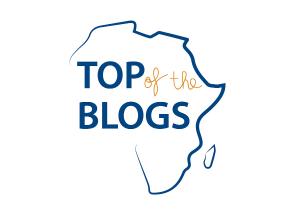Top of the Blogs 2018 #12 - Media Programme Sub-Saharan Africa
Asset Publisher
Top of the Blogs 2018 #12
Asset Publisher
The world has been looking to Zimbabwe this week and so are we with this week’s Top of the Blogs: after days of street protests the incumbent President Mnangagwa was announced as the winner with 50.8% of the vote - was the historic election as free and fair as was initially promised? We also look at internal troubles within Nigeria’s ruling party and why African presidential elections always feature so many candidates.
Zimbabwe’s historic elections: a case of leopards not changing their spots
Theconversation.com
Zanu-PF´s Emmerson Mnangagwa won the election in Zimbabwe with 50.8 percent. The election should be historic, introduce a new turning-point and this under observation of international politics. In the beginning, the elections were peaceful and the voters came in large numbers. But that was where the good news ended when violence broke out after the parliamentary results were published: the MDC alliance (Chamisa-led alliance) interrupted and discredited the elections, while the Zanu-PF used force through the security establishment. In the end, three people died. Within two hours, Zimbabwe's election changed from a peaceful, free and fair one to one that is remembered for violence and accusations of fraud. The promise of a new dawn seems to have disappeared immediately.
Zimbabwe’s historic elections: In Defence of Zimbabwe’s Rural Voter
Africablogging.org
After the election comes the mistrust - mutual reproaches, who elected whom and whom not. A particular distinction is made here between rural and urban voters. It is not for nothing that people post on social platforms that Zimbabwe should have two governments: one for "urban" and one for "rural" areas. Well, that's not how it works, as blogger Takura Zhangazha writes. "It is important to remember that we are all Zimbabweans, regardless of geographical location. And that is why we all have the same constitutional rights. Whether in the rural Mahuwe or in the urban Dzivaresekwa."
Why so many presidential candidates contest African elections
qz.com
Electoral power, flagrant misconduct and, most recently, fake news: these are some of the issues that will define African elections. But for years, polls across the continent have added another key feature: a multitude of presidential candidates. A Quartz analysis of African elections over the last three years shows dozens of candidates, mostly men, running for the top job. The most recent example of this is the historic elections in Zimbabwe, in which 23 candidates tried to replace President Emmerson Mnangagwa, who came to power after the ousting of Robert Mugabe last year. The same applies to Mali, where 24 candidates competed against President Ibrahim Boubacar Keïta at the end of July. Why are there so many candidates? Governance experts weigh in with some enlightening statistics.
Defections and deflections: Who now holds the balance of power in Nigeria?
Africanarguments.org
This week there was another earthquake in the turbulent political landscape - this time in Nigeria with Senate President Bukola Saraki resigning from the ruling party. The country's third highest politician explained why he had left the All Progressives Congress (APC) and said his position in the party had become untenable. On his departure, Saraki followed in the footsteps of 14 senators and 37 members of the House of Representatives, who also left the APC dramatically last week. They too complained about the sidelines and criticised various aspects of President Muhammadu Buhari's governance of the party and the country. The APC is beginning to disintegrate, says blogger Lagun Akinloye, describing the story of the APC, which he believes has always been divided.



